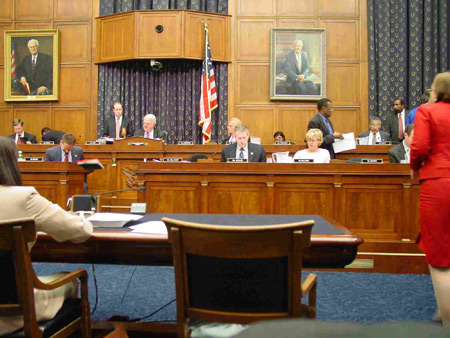
A long time ago, in a universe far far away, an unwritten truce was made. The record labels, young and untested, decided to turn a blind eye to the profit potential of performance royalty payments from an equally nascent form of media, radio, to allow both of them to grow out of a relationship of mutual reliance. This was about 70 to 80 years ago, when the first radio music broadcasts occured, and when jazz was actually popular. Not that there's anything wrong with jazz, unless it's from Utah.
We fast-forward to now, and the record labels under the RIAA are running out of effective ways to recoup the loss of their primary source of income, and are now resorting to political means to do so. Their latest effort, one that was initially reported in December in the year-end piece The War on Copyright (TMT Feature), is the Performance Rights Act, which basically forces the equally declining radio industry to pay royalties to the labels to play their music. Ironic cross-industry secret: Most of these stations get their music from the labels for free to begin with. I'm surprised the labels don't use that as a source of revenue.
The House edition of the act, H.R. 848, has passed the House Judiciary Committee yesterday on a vote of 21-9. All the Nays save one (Maxine Waters (D-CA)) were Republican, including Ranking members Lamar Smith of Texas and Bob Goodlatte of Virginia, according to FMQB. Its passing means that it will go to the House for an actual vote. While there are still a few hurdles before the act reaches the President's desk, its passing means that it is one of the few bills that will likely reach the President's desk in the first place. Its massive bipartisan support in both the House and Senate (bill S.379) will likely allow it to coast there.
What does it mean if it comes to pass? On the one hand, it will do some significant damage to commercial radio, forcing them to pay upwards in the hundreds of thousands to pay for royalties, and perhaps it will be a deserved beating. The majority of you readers likely do not even listen to commercial radio, due to its monotony, lack of original selection, and non-support for local artists. There are not many that will mourn if pop radio stations go the way that newspapers are going. On the other, this will likely damage college and independent radio stations just as much. While the amendments passed by Committee Chairman John Conyers (D-MI) before the bill's passing reduced the flat fees for radio stations making less than $500,000 in revenue, these fees can still be significantly damaging to radio stations that rely heavily on donations, especially in these trying times. Many of these stations will likely shutter in the few years after they are forced to start paying, if they can't scale back their operations significantly. Further, royalties like these often do not end up in the majority of artists' hands. And finally, the labels will only get a large amount of revenue in the short term, for as radio stations scale back and shutter, so too will the sources of royalty income.
In the end, it's a no-win situation.